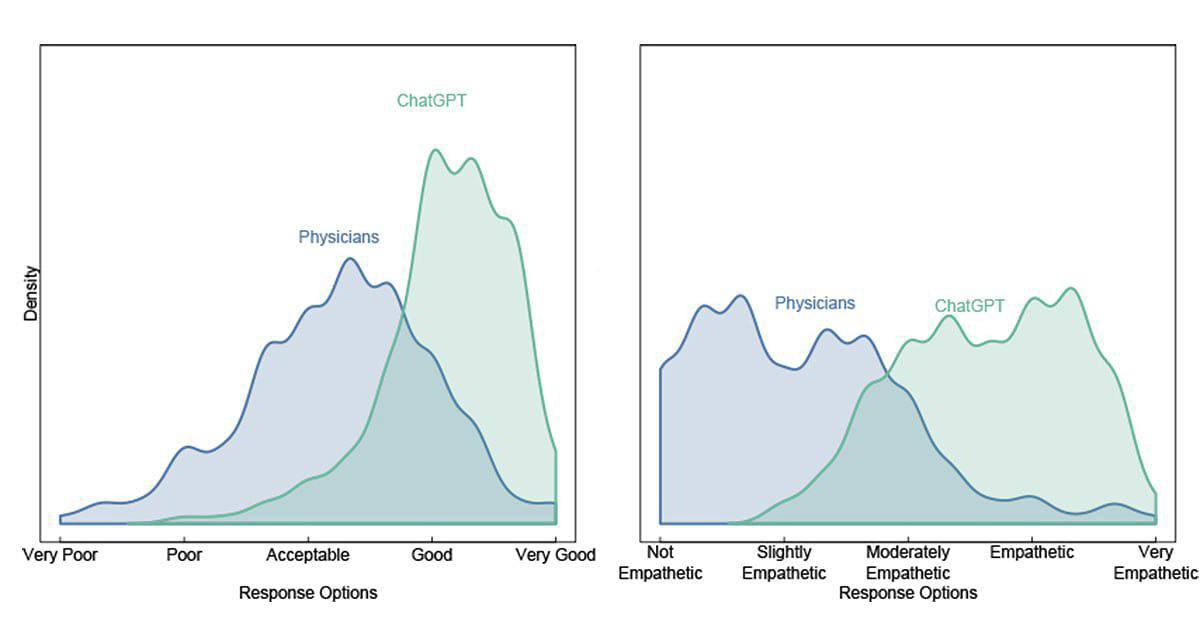ChatGPT Answers Outperform Doctor Recommendations by 79% in Reddit Study
A fascinating study emerging from the AskDocs subreddit has revealed a surprising trend: users find ChatGPT’s responses to medical queries to be 79% more helpful than those provided by actual doctors. This compelling statistic highlights the growing potential of AI in healthcare, not as a replacement for human expertise, but as a powerful tool to augment and accelerate the work of medical professionals.
While the initial findings might seem to suggest AI’s superiority, it’s crucial to understand the nuanced implications. This significant improvement in perceived helpfulness doesn’t diminish the indispensable role of doctors. Instead, it points towards how AI, like ChatGPT, can empower physicians by:
Enhancing Diagnostic Efficiency
- Rapid Information Retrieval: AI can quickly sift through vast medical literature, clinical trial data, and patient histories to provide doctors with relevant information at an unprecedented speed. This allows for faster identification of potential diagnoses and treatment options.
- Summarizing Complex Cases: For intricate patient cases, AI can generate concise summaries, highlighting key symptoms, medical history, and potential complications, saving doctors valuable time in their initial assessment.
- Generating Differential Diagnoses: ChatGPT can assist in brainstorming a broader range of possible conditions based on presented symptoms, ensuring that less common but critical diagnoses are not overlooked.
Streamlining Patient Communication
- Drafting Explanations: AI can help doctors draft clear, easy-to-understand explanations of diagnoses, treatment plans, and medical procedures for their patients. This can improve patient comprehension and adherence to medical advice.
- Answering Frequently Asked Questions: By handling common patient queries, AI can free up doctors to focus on more complex and personalized patient care.
Supporting Medical Research and Education
- Literature Reviews: AI tools can significantly expedite the process of conducting comprehensive literature reviews for research purposes, identifying key studies and emerging trends.
- Medical Training: AI-powered simulations and interactive learning platforms can offer valuable training opportunities for aspiring medical professionals, allowing them to practice diagnostic and treatment scenarios in a safe environment.
Crucially, this does not imply that you should blindly follow AI-generated advice. The nuances of individual patient health, the importance of empathy, and the ethical considerations inherent in medical practice remain firmly within the domain of human physicians. AI is a powerful assistant, but it lacks the critical judgment, emotional intelligence, and hands-on experience that define a skilled healthcare provider.
In situations requiring medical attention, always consult with a qualified healthcare professional. The insights from AI, as demonstrated in this study, are best utilized as a collaborative tool to enhance the existing healthcare system, leading to more efficient, effective, and ultimately, better patient outcomes.
Discover how AI is revolutionizing healthcare and learn more about our innovative solutions.
Frequently Asked Questions (FAQ)
- Can ChatGPT replace doctors?
No, ChatGPT is designed to assist medical professionals, not replace them. Human doctors provide essential empathy, critical judgment, and hands-on care. - How does AI improve doctor efficiency?
AI helps by rapidly retrieving information, summarizing cases, and drafting patient communications, allowing doctors to focus on complex decision-making and patient interaction. - What are the limitations of AI in healthcare?
AI lacks the nuanced understanding of individual patient circumstances, emotional intelligence, and the ethical framework that human doctors possess.
Connect with us for the latest advancements in AI-powered healthcare.
Contacts: https://t.me/MLM808

